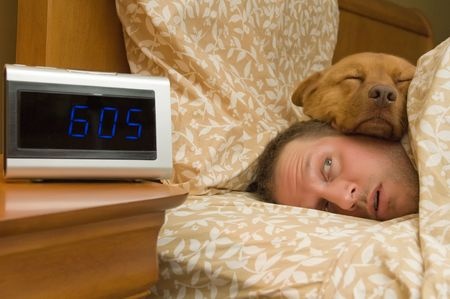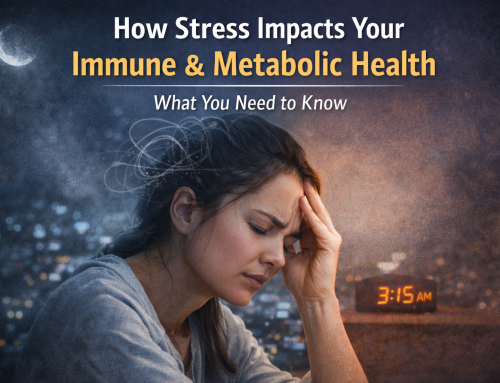Diets are undermined by sleep deprivation. We’ve known this for many years. One reason is that during sleep our hunger hormones get reset.
Research also shows that a lack of sleep kicks off a process in the body that raises the blood level of a lipid known as endocannabinoid. This acts on the brain in a similar way to marijuana, making the act of eating more enjoyable, especially in the evening.
But it increases hunger for specific types of foods, such as cookies, candy, and chips. In fact, people who don’t get enough sleep eat twice as much fat and more than 300 extra calories the next day, compared with those who sleep for eight hours.
New Research on Sleep-Deprivation and Diets
Diets of sleep deprived people can be sabotaged by their olfactory senses. New research shows that our noses may be the culprit in junk food cravings after a restless night.
Why We Crave Junk Food After a Sleepless Night
When you’re sleep deprived, you reach for doughnuts and pizza. A new study has figured out why you crave more calorie-dense, high-fat foods after a sleepless night. Blame it on your sleepy nose; the olfactory system.
A new Northwestern Medicine study has figured out why you crave more calorie-dense, high-fat foods after a sleepless night. It also provides some help to thwart those unhealthy choices.
According to the study, your olfactory system is affected in two ways by sleep deprivation.
- First, it goes into hyper drive, sharpening the food odors for the brain so it can better differentiate between food and non-food odors.
- But then there is a breakdown in the communication with other brain areas that receive food signals. And with that, decisions about what to eat change.
Senior author Thorsten Kahnt, assistant professor of neurology at Northwestern University Feinberg School of Medicine, explains the research:
- When you’re sleep deprived, these brain areas may not be getting enough information, and you’re overcompensating by choosing food with a richer energy signal.
- But it may also be that these other areas fail to keep tabs on the sharpened signals in the olfactory cortex. That could also lead to choosing doughnuts and potato chips.
- Past research shows sleep deprivation increases certain endocannabinoids, which are naturally produced by the body and are important for feeding behavior and how the brain responds to odors, including food smells.
- We put all this together and asked if changes in food intake after sleep deprivation are related to how the brain responds to food odors, and whether this is due to changes in endocannabinoids.
How Sleep-Deprivation and Diet Research Was Conducted
- A two-part experiment with 29 men and women, ages 18 to 40.
- Study participants were divided into two groups.
- One got a normal night’s sleep, then four weeks later, were only allowed to sleep for four hours.
- The experience was reversed for the second group.
- The day after each night (good sleep and deprived sleep), scientists served participants a controlled menu for breakfast, lunch and dinner, but then also offered them a buffet of snacks.
- Scientists measured how much and what they ate.
Researcher Explains the Study’s Conclusions:
- We found participants changed their food choices.
- After being sleep deprived, they ate food with higher energy density (more calories per gram) like doughnuts, chocolate chip cookies and potato chips.
- Researchers also measured the participants’ blood levels of two endocannabinoid compounds — 2AG and 2OG. One of the compounds, 2-OG, was elevated after the night of sleep deprivation and this increase was related to changes in food selection.
- In addition, scientists put subjects in an fMRI scanner before the buffet.
- They then presented them with a number of different food odors and non-food control odors while they observed the piriform cortex, the first cortical brain region that receives input from the nose.
- They observed that activity in the piriform cortex differed more between food and non-food odors when subjects were sleep deprived.
- When the piriform cortex does not properly communicate with the insula, then people start eating more energy-dense food.
Help for Sleep-Deprived Dieters
The solution? Optimally, you will get more sleep. If that doesn’t happen, avoid the donut and Cinnabon shops. Be conscious that once you smell the enticing aromas, you won’t be able to resist eating the junk food. So, stay out of harm’s way.
Click here to read article about diets and sleep deprivation.






